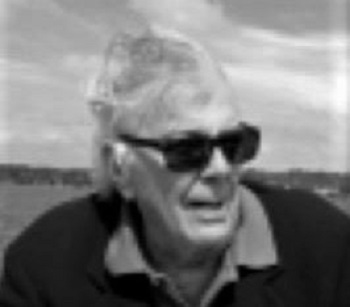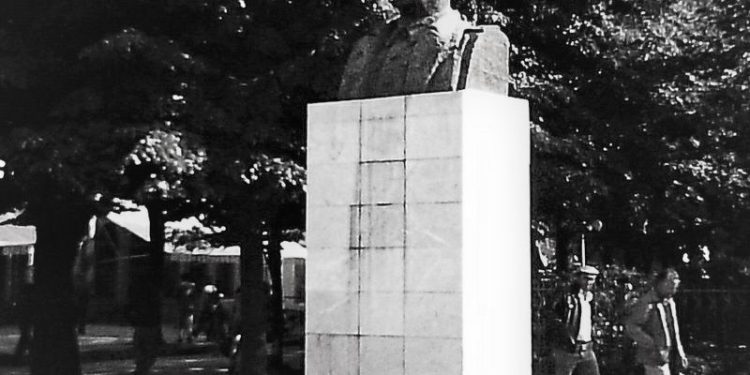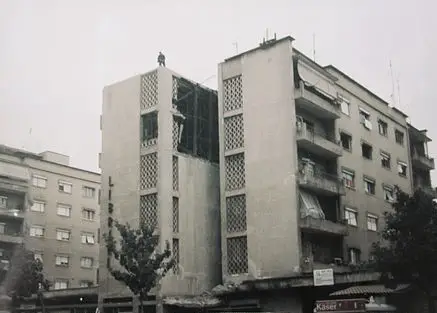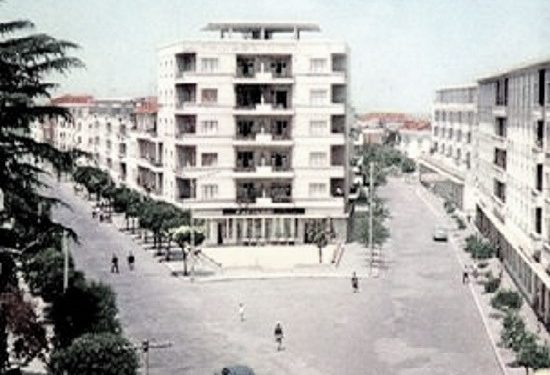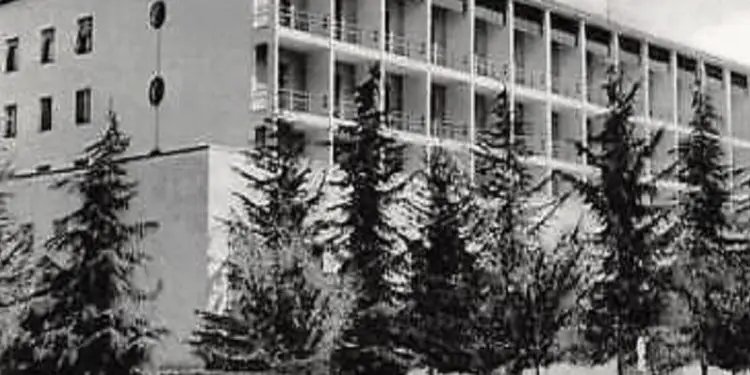From Luan Rexha
Second part
– Memoirs of a retired journalist –
Memorie.al / Luan Rexha are a well-known journalist on the staff of the newspaper “Giornale di Sicilia” and “Ansa” in Italy. Despite his Italian education, in his heart there is a lot of longing for Albania. The book that is being presented to the reader contains a collection of articles that reflect the communist period in Albania in 1967. As the author himself claims, he was the first western journalist who was granted a visa to visit Albania and do a panorama of the country, related to the relations between Enver Hoxha’s communist Albania and the People’s Republic of China led by Mao Zedong. In these articles, there is no lack of autobiographical elements, which further enrich the framework of the events. They also appear in his novel known to the Albanian reader: “Death has blue eyes”, under the guise of journalist Michele Sermonti, in the role of the main character. The author left Albania in his mother’s arms, when he was only ten months old, to start a new life in Sicily and only in 1967, he was given the opportunity to return to Tirana, to meet his grandmother and his relatives, whom he had never seen before. His career is very diverse: At first as a journalist for “Giornale di Sicilia”, he had to describe Sicily in the Mafia period, the earthquake of 1967 and the Albanian experience. At the same time, his contribution also extends to the field of theater as the author of several pieces and musicals and cinema. This gives him the opportunity to be in contact with people of letters and art. These premises are left-oriented, but the influence on that of Italian communism, which is essentially Western and cannot be reconciled with the totalitarianism of real socialism, is evident. He has to face this during his stay in Albania. It describes the reality of an indoctrinated country where the media was censored. In fact, he notes that Albania had passed from feudalism to communism, without recognizing the bourgeois development. A special place is occupied by analyzes of the way communism is perceived by the Chinese and Albanians. The reality of everyday life appears before his eyes. He admires the work of the people who, although voluntarily, with difficulties and sacrifices, had built railways, etc. Even in the relationships with the people around him, the author has to face the slogans of the regime, which did not correspond to the truth as in the case of the lightning sheets. Also, one of the things that impressed the author is the physical culture of the morning, the funny way of forming lines and moving in harmony with the leaders. Luani cannot even agree with the rigid attitude of Albanian communism, towards religious freedom, objects of worship and beliefs, which is expressed in their closure and the impossibility of practicing religion. So, the picture of Albania is described in vivid colors by the author who has shared life with his compatriots in Albania for a period of several years.
“Giornale di Sicilia”, March 3, 1967
“When you and the SS came through, it was worse than the apocalypse”
Only the “members of the youth organization” of Enver Hoxha believe in the war – As for the dialogue between East and West? – The wolf and the lamb have never spoken…”!
Tirana, March 2
The monument stands in the great square of the Republic. Behind him a disused minaret and in the background the trees on the side of Revolucion boulevard. The driver respectfully tells me that the Committee for Friendly Foreign Relations has made me available.
“Great leader,” he said and touched his beret.
We stopped and the lens of my Rollei camera focused on the only standing statue of Stalin in Europe.
“We have not denied it.”
Apparently, Zefi, so called “my guardian angel”, is not only tasked with driving the old Czechoslovak car “204” on the traffic-free streets of Tirana: he has a whole list of slogans, too said in the right tone at the right moment.
In front of the statue of the Russian dictator Stalin, the life of Enver Hoxha’s capital of Albania takes place. “In 1939 there were forty thousand inhabitants, while today there are already two hundred thousand”. There was nothing. Apart from the peasants’ cottages and the poverty, which was great”?
The ideological-tourist guide that the Committee has chosen for me is in a good mood: he knows Italian well and can repeat the lecture tirelessly.
We passed the new quarters. Big concrete buildings, with no tolerance for aesthetics, trees, people on bicycles, some Fiat buses painted red, soldiers, women still wearing the Turkish headscarf, other newer ones in blue overalls, groups of children holding hands (they are the Pioneers, the “tables” of Marxism-Leninism), well-mannered Chinese engineers with books under their arms, few shops, very few cars, posters and portraits everywhere.
The driver keeps talking: “Do you want to know what is written? It’s not a secret, I can tell you. Here on the yellow background Comrade Secretary assures us that the imperialist-capitalist-revisionist clique will not succeed in defeating us; another slogan talks about the need to mercilessly attack all deviations that threaten world communism”.
Now Zef smiles foxily: “On the contrary, it is written under the portrait of Mao that we will make the traitors of the people have the same end as the Nazi fascists.”
Apparently, he thinks that the word “fascism” evokes in me, as an Italian, the thrill of revanchism, and he enjoys feeling himself the strongest. Then he immediately changes his tone, his blue eyes become aggressive, his voice tense: “Because of you, we have suffered a lot and some things are not forgotten. You wanted to turn our country into a colony, a land occupied by black shirts.
Even when you tried to free us, you killed, tortured and destroyed us. Where you and your Hitler friends were going, it was the end of the world. But now keep in mind, Albania has returned to the people and the people are ready to defend their land and communism. We are not afraid.”
More than twenty years have passed, but the wounds have not yet healed. Our imperialist adventure has not been forgiven and especially the memory of the Italians remains linked to the massacres of the SS.
“You were allies and you are responsible like them.”
I wanted to explain to him that that Italy no longer existed and that no one thinks of attacking Albania, that fascism is like a disease that has passed, but it was useless, for Zefi and others like him, the war is not over, it should not to finish.
The spirit of resistance is still felt here: it is not affected by the opium of well-being, with the concern to secure a piece of “miracle” and the visible and gradual flattening of consciousness. Albanians do not want to remember the years of terror: “When something comes back to memory, says Zefi, we already start to forget it.” For them, to lose the concrete meaning of those heroic days is to deny oneself and one’s own history and to desecrate the meaning of many sacrifices.
The new Albania was born from the mountains; it is artificial, anti-fascist in blood and in character. It would be the same if, immediately after the liberation, other forces had come to power instead of the communists. In Enver Hoxha, a people saw the man who managed to make Albania an independent country, leading to the end a process of renaissance, disturbed for centuries by wars and submissive governments.
The Albanians believe in this red Skanderbeg as a savior: he was the one who took revenge on the unparalleled atrocities committed by the fascists (Albania had a percentage of casualties three times higher than England in the last war) and that saved them from the economic and social brutality from which they had been condemned for centuries by the beylers with long swords and countless fiefs. For this reason, the word “partisan”, in the European bastion of Marxism-Leninism, has not been set aside and therefore according to them the struggle must continue.
In “Lenin” square we come across a long line of trucks. It is the students who go to open new agricultural lands: volunteers, pioneers with red scarves, members of the Youth of Work. They stay away from the city for a month, and then return to school to be replaced by other friends.
It is their duty to advance rural reclamation and the ideological side. “Just as your pickaxes and shovels will turn stones into trees, so culture must uproot what remains of the past and eradicate bad habits forever.”
It is the first point of the Cultural Revolution. Bad habits abound: religion, selfishness, suffering before sacrifices, speculative spirit, revisionist tendencies, suspicious pacifism, physical weariness, and apparent interest in material pleasures.
The regime is harsh. It needs two million people who, after the eight hours of daily work that all intellectuals and workers must do, are ready to stop in offices, factories, fields, etc., to make a voluntary contribution to country to keep pace with history.
“We have passed from a feudal system to socialism, without ever knowing the bourgeois phase. In 1939, it was the middle Ages in Albania: thirty beylers had the whole country in their hands. They lived on livestock. Ninety percent of the population could not read or write. .We had oil and we passed over it without knowing it. Our mountains were rich in minerals and others took them from us.
In the lands that today yield wheat, vineyards, tobacco, olives, there were only swamps. Whatever sacrifices the Party asks of us, we are ready to make, because the country still needs us. But today the finish line is close: in 25 years we have regained a disadvantage of four centuries.
This is our answer to those who want to denigrate Marxism-Leninism”. These were the words of a pioneer in a red scarf. He must not have turned fifteen. Wears a long military coat and a beret with a five-pointed star.
“We are going to the mountains, – he tells me again, – walking in the footsteps of the partisan brigades. We are returning to the places of our victories. We will talk in the villages with those who saw them and remember them. We will train with the partisan war and at the same time our spirit will be strengthened, experiencing the memorable deeds of our fathers”.
The tone of my new interlocutor is powerful and persuasive. Zefi had called him. Certainly, he was a man who enjoyed the confidence of the Committee. I asked him if it would be possible and a day would come when it would no longer be necessary to carry a gun on our shoulders. “Does this mean dialogue? De-escalation of tensions? Posture of revisionist traitors”?
It has a serious look of premature aging. He shakes his head and addresses me in French with hard “s”: “Tell me, was there ever a quiet conversation between the wolf and the lamb?”
He is pleased because he seems to have beaten me. He greets Zefi with a closed fist and nods. He passes the machine gun from his right shoulder and runs to reach the group of militants waiting for him in front of the Palace of Culture.
The conclusion does not lack logical flow: it remains to be seen who the wolf is. Memorie.al
Translated and prepared by: Alvin Saraçi
The next issue follows





